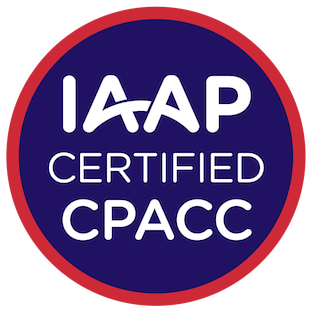How do you reach and serve more people with disabilities?
With
Moxie.
Accessibility strategy and inclusive design for small businesses.

Moxie:
- Energy, pep
- Courage, determination
- Knowledge, know-how
a11y:
- a + 11 letters + y = accessibility
- ensuring your products, services, websites, and physical environments are usable for as many people as possible — particularly people with disabilities.
“Because of Josh I consistently think about accessibility and neurodiversity when I’m developing and dreaming up new experiences for our stakeholders.”
Tytus Planck, lead software engineer
Why you need to be accessible.
1 in 4 Americans and 1 in 6 people worldwide have a disability. 1 in 5 people are neurodivergent, and half of them are unaware of it.
If your business isn’t accessible, you’re turning away a lot of potential customers — probably without realizing it.
If your business isn’t accessible, your workforce is less efficient — even if you aren’t aware of employees that have disabilities.
“Josh has always focused on the theme of inclusivity in his work…Josh is a brave person.”
John Moe, folklorist
Accessibility is a strategy.
Almost every business is subject to the Americans with Disabilities Act, but accessibility isn’t about compliance — it’s about people: your customers and your employees.
With a little bit of Moxie, you can move past regulations and make accessibility a strategy.
“He has been instrumental in providing feedback on accessibility and design elements to ensure the platforms are inclusive.”
Megan Copas, director, consumer research
Your path to accessibility.
As Moxie a11y, I help small and local businesses be more accessible and remove disability barriers in their communities.
IAAP Certified, DHS Trusted Tester
I’m a Certified Professional in Accessibility Core Competencies (CPACC) with the International Association of Accessibility Professionals (IAAP)
I’m a Section 508 Trusted Tester with the Department of Homeland Security.

“Josh is a thought leader on accessibility, user research and design.”
Jim Gerwe, science and technology services operations
My services
Opportunity assessment
Research-informed strategies tailored to the needs of your specific communities and markets, so your path to accessibility is effective and cost-efficient.
Inclusive design
Evolve your products, websites, services, and environments to meet your customers’ and employees’ unique needs in the way your business uniquely can.
Accessibility training
Bring the Moxie in-house with training so you and your employees can take charge of your accessibility strategy — and save money on consultants!
How it works
It starts with a phone call to understand you and your business. From there, we can define a scope and timeline that fit your goals and your budget.
If this sounds good, fill out the contact form to get in touch.
The brass tacks (pricing)
There’s no specific pricing. The scope of work can be defined to fit budgets as low as $500.
Larger scopes for in-depth research, design work, and training may require budgets of several thousand dollars or more.
Things you should know
I freelance part-time. To manage my schedule I take on limited clients and I scope my work against a busy schedule.
I’m an accessibility strategist and inclusive designer. I am not a web developer. If I see something I can help with, I will, but my services are not a substitute for an expert in developing to WCAG standards.
“Our customers are going to benefit significantly from his work on our products.”
Claire Sillato, ux researcher
About Moxie a11y
I’m Joshua Smith. I started Moxie a11y (spoken as “Moxie accessibility”) to help remove barriers for people with disabilities by helping small businesses be more accessible.
My experience in accessibility includes digital accessibility as a User Experience Researcher and Designer for a Fortune 50 Company, as well as living as neurodivergent and disabled person and supporting family and friends with profound disabilities. I’ve been in tech and design consulting for over a decade, with a half-dozen Fortune 100 clients.
“Joshua makes you want to improve solutions together.”
Tyler Uher, data scientist